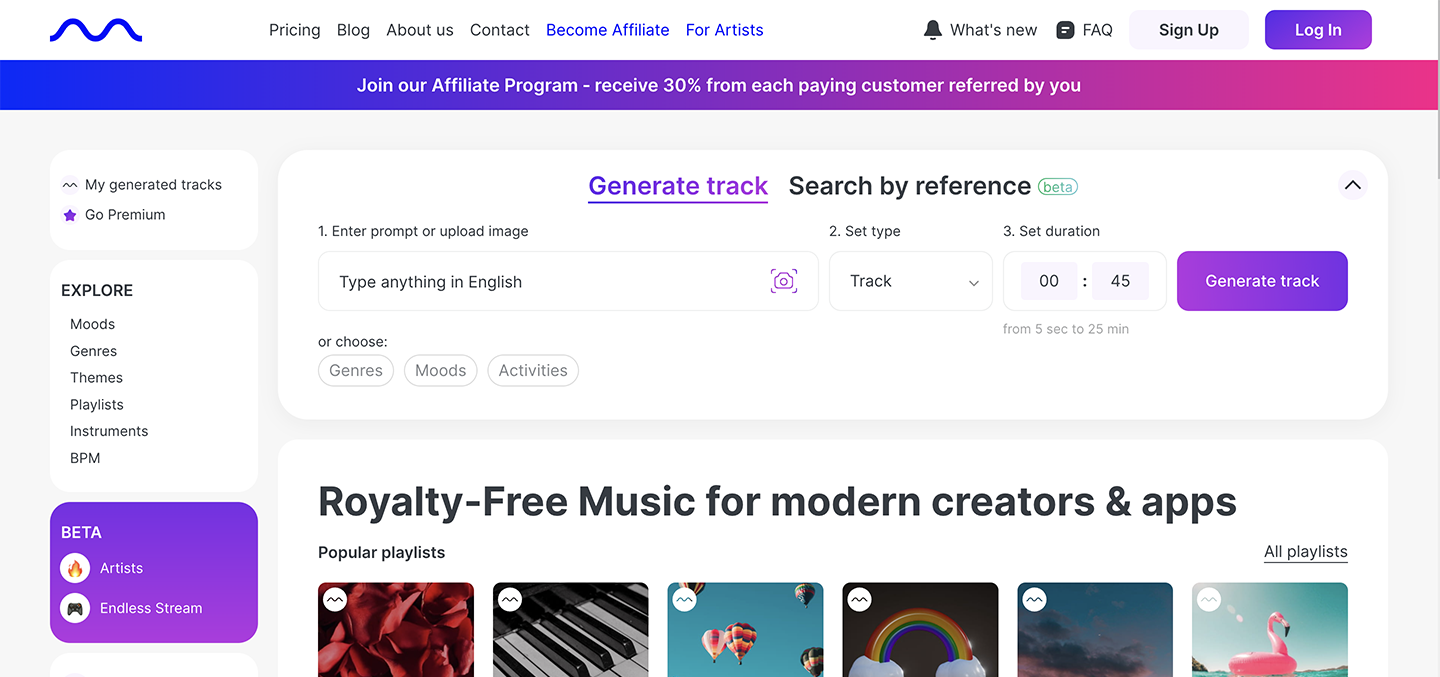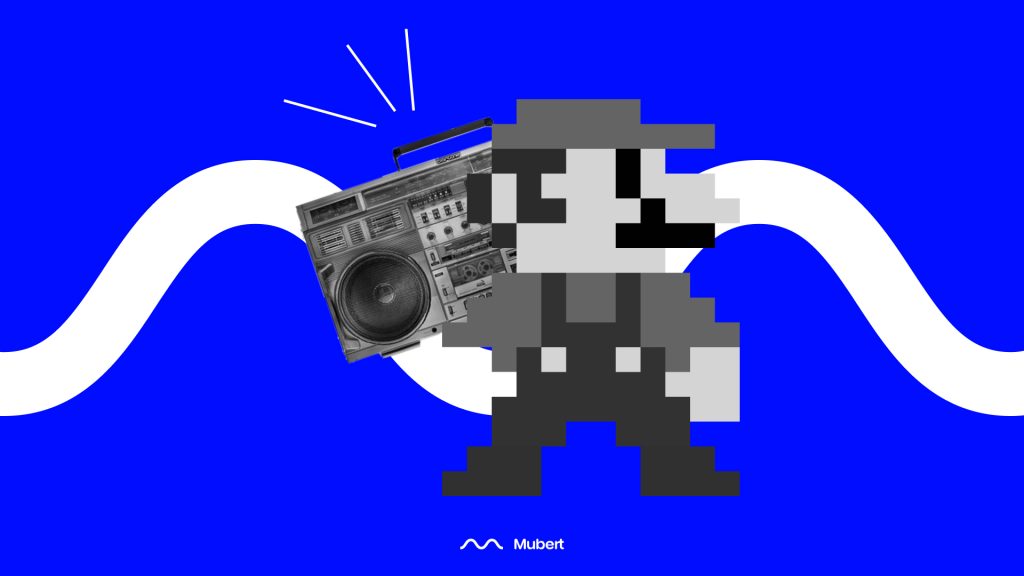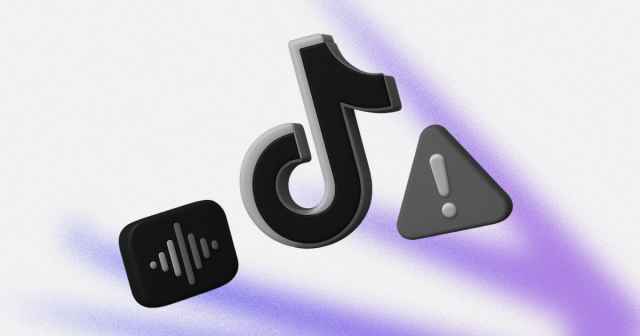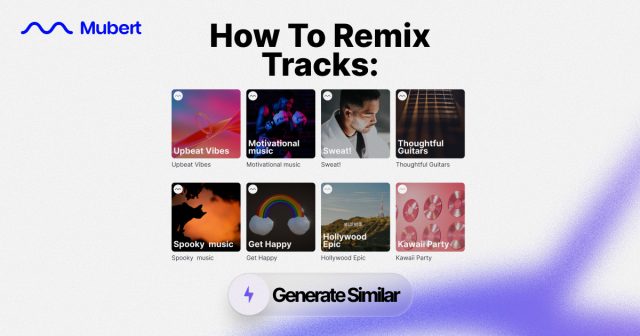
Create royalty-free AI music tracks with one click
Just describe what you want and get an instant track of any duration — and you will never meet any troubles with copyrights
Get startedThe gig economy is taking off faster than ever, and technologies are rapidly evolving. Spending weeks composing your own in-game soundtrack is no longer necessary. There are music engines and services that offer royalty-free game music. They also let you integrate custom API settings. This allows you to create adaptive music for your video game in real-time.
The 8-Bit Era
Looking back at the first Super Mario game, there wasn’t much of a story behind it. The only information that you were given was that Mario was a plumber who needed to rescue a captive princess. However, the in-game music was dynamic enough to signal changes in the game world. As soon as players advanced to the second stage, the music shifted. It moved from a happy major scale to an ominous minor one. This shift foreshadowed the growing number of obstacles and monsters ahead.

Playing Mario without the adaptive music probably wouldn’t have been as engaging and hearing the same theme repeat countless times in the background would’ve been quite annoying.
There was an in-depth study that went as far as creating their own game, Galactic Escape, to discover how adaptive music can raise tension and affect a player’s engagement, targeting music in games and player immersion. Based on this experiment, the researchers came to the conclusion that there is, in fact, a significant relationship between adaptive and linear music in games.
The Evolution of Games
With video games shifting from linear to non-linear storytelling, especially in open-world action RPGs, the music has also evolved. This evolution was necessary to keep up with elements such as voice acting, cutscenes and graphic enhancements. Without these elements working together, the experience wouldn’t be very immersive and the player engagement would most likely decline.

Whether it’s an open-world RPG or a simple arcade game, research tells us that adaptive and tension-adaptive music increases player engagement. Depending on what is happening in the game and the compositions in the background, users experience a plethora of emotions such as excitement, fear, tension, sadness, satisfaction, joy, and happiness.
Linear vs. Adaptive Music in Games
Research states that audio and music elements — sounds like a gun cocking or the features like tempo, melody, tone, and scale — can really affect how people perceive what’s in front of them. These components can create dynamic music that adapts to the situation in the game, thus immersing users completely into the narrative.
Audiokinetic found that around 50% of players describe looped music as “annoying,” with some even commenting that they would rather switch off the sound completely than hear it over and over again. With 75% of the users being familiar with the term adaptive music, approximately 80% of gamers and VR/AR users believe that it’s a crucial step in improving the overall experience of such content.
Finding Music for Your Games, API, and Music Engines
When developing video games, big studios have the capacity and resources to hire music composers to write the score. On the other hand, it might not be the best option for independent developers. Hiring seasoned composers typically costs a lot of money. Additionally, this does not include the finances required for studio time, musicians, and production.
With today’s technology, APIs and music engines can stream and play copyright-free music for your games, based on in-app scenarios. With custom API integration, you don’t need to produce your own music. You can quickly customize the integration to meet your needs. This enhances the game with real-time-generated music, saving developers time and money.

There are services such as Mubert that have a massive library of songs that you can use for the game you’re developing. At the same time, Mubert also offers API integration that can adapt to the vibe you’re going for. Even if you’re not a game developer but you want to stream free game music loops while playing your favorite mobile, PC, or console games, you can use this API to stream music.
The Future of Adaptive Music in Games
Music will always be an integral part of media, whether it’s a TV show, video game, or theme park ride. Using adaptive music for a product increases player engagement, making the product more lucrative. According to Audiokinetic’s article, less than 25% of gamers find the music on up-and-coming platforms “satisfying”. Therefore, it is inevitable that new, more interactive, and flexible audio solutions will be invented.
Who knows, maybe it doesn’t stop with music. The possibilities are endless and music is only a fraction of what makes a game engaging.
Other factors like graphics, VR, AR, and multiplayer interactions will continue to improve. They give gamers a more immersive experience. Players can meet friends, build custom avatars, and create their own worlds.
In the next 20 years or so, people might make a living within the virtual world with jobs like producing music for gamers, creating virtual art or NFTs you can own and sell within the game, or even mining cryptocurrency. Of course, that’s just a thought… but it’s definitely possible.
API B2B CreatorsAI Music Company
Mubert is a platform powered by music producers that helps creators and brands generate unlimited royalty-free music with the help of AI. Our mission is to empower and protect the creators. Our purpose is to democratize the Creator Economy.
Generate Track API for Developers
















